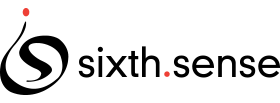
New Year’s resolutions – already broken or forgotten?
Here are the ten most common New Year’s resolutions as identified by recent research:
- Lose weight
- Get organised
- Spend less, save more
- Enjoy life to the fullest
- Get and stay fit and healthy
- Learn something new
- Stop smoking
- Land a new job
- Find a new romantic relationship
- Achieve more work-life balance
Recognise any?
Problem is, over 90% of you will already have broken a few, if not all and it’s only the third week back after Christmas!
So, shall we just drop the whole idea and stay fat, overworked and unhappy? Not so fast …
The main reason for why we fail to stick to our resolutions is that we often do not appreciate that certain changes can be difficult and therefore we set unrealistic goals, or simply too many of them.
The behavioural psychologists James Prochaska and Carlo DiClemente point out that we do not simply spring into action but that we change in stages. In fact, the researchers argue that change consists of five, clear steps –
- Pre-contemplation stage – You are not even considering the change. You might be aware of the benefits of changing but none of them apply to you. You might be in denial of course…!
- Contemplation stage – You are warming up to the idea of changing, but are still intimidated by the drawbacks of doing something differently.
- Preparation stage – You have truly bought into the idea, have listed the associated benefits and know how to get started. You are ready to roll.
- Action – You start to practise the new behaviour.
- Maintenance – You take action not to fall back into old habits.
Looking at this model, it is not surprising that so many of us fail to stick to our resolutions – we often expect to simply jump to action, i.e. start exercising, stop smoking, but fail to appreciate that this is step FOUR of the process. This is what we mean by unrealistic expectations! Before setting a New Year’s resolution it can therefore be helpful to work out at what stage in the process you are. Prochaska and DiClemente propose that each step can take weeks, and that the action stage has to be followed up with a stage of maintenance where we put in continuous efforts to commit to our new behaviours.
Depending on where you are in the process, there are some strategies to help you move forward. For example, consider:
- Pre-contemplation stage – write lists of the pros and cons of changing, and really start evaluating the benefits
- Contemplation stage – if the drawbacks are holding you back, try to resolve them by planning exactly how you will make the change, i.e. if you feel that you do not have enough time to exercise, make a specific plan as to when / where / how you are going to exercise
- Preparation stage – is a fear of failure stopping you from jumping into action? Recognise that this is normal. It can be helpful to visualise how it would feel like to change in comparison to how you feel now and to identify how you would overcome obstacles and seek support if needed. Try and go for bite sized chunks and not actions that you won’t be able to follow through on.
- Action – try to reiterate the benefits and seek social support if you encounter obstacles!
- Maintenance – accept that making change isn’t something that happens in a vaccum. You will need to consider the life you lead, the people you are with and whether the whole environment is supportive of the changes that you are seeking to make.
Therefore, be honest about where you are in the change process, and if you are not in the third stage a reasonable resolution might be to follow the above strategies to get you closer to taking action.
But that is not all! Research has also shown that in order to change, we need to adopt new habits.
Habits and how to make the most of them
Our goals need to involve either the formation of new habits, or the changing of existing ones. If you want to ‘exercise regularly or ‘eat healthily’ then you are essentially trying to form a new habit. To quit smoking, on the other hand, is trying to change an existing habit. In both cases it is important to understand what habits are and how we can successfully form or change them.
Psychologist describe habits as conditioned responses to stimuli or events, i.e. we automatically respond in the way we do, without thinking about it much. And although we often perceive ourselves as victims of our habits, there are methods that allow us to change them, or actively form new ones:
- Try to understand what triggers your habits – removing such triggers could then help you overcome your habit. Sounds complicated? It’s not! In fact, it might be as easy as getting rid of all biscuits in the house to stop you being tempted by them!
- Attach your new habit to an existing one! Are you already walking somewhere for 5 minutes every day? Add the new habit “walk 10 more minutes” onto the existing habit and your existing habit will act as a “cue” for your new habit.
- Lastly, start small! You can probably imagine why ‘never smoke again’ may not be the most motivating goal for a smoker… instead, set SMART goals.
SMART goals
This will not come as a surprise to anyone working in business. If business and organisational goals should be SMART, so should New Year’s resolutions. That means they should be specific, measurable, achievable, realistic and time-bound. It is easy to lose track of goals such as ‘exercise more’ because we have difficulties monitoring our progress and celebrating our successes. Instead, being more specific and saying ‘In the next two months, I want to exercise at least twice a week for half an hour’ does not leave much room for excuses. This statement is also time-bound which makes it measurable – when the two months are over you can ask yourself: ‘Have I been exercising twice a week?’ and if not then… well.
It is also important to be realistic in terms of what you can and cannot achieve. If you drink alcohol every day and want to cut down on it, you may find that you will struggle to suddenly go tea total. Instead, break the task down into smaller steps, perhaps have two drink-free days, then once this is manageable increase the number of days without drinking.
Get some support
Finally, nobody is an island. If you need some support, we are here to help with a wide range of workshops and coaching programmes. Just get in touch.

Start The Discussion